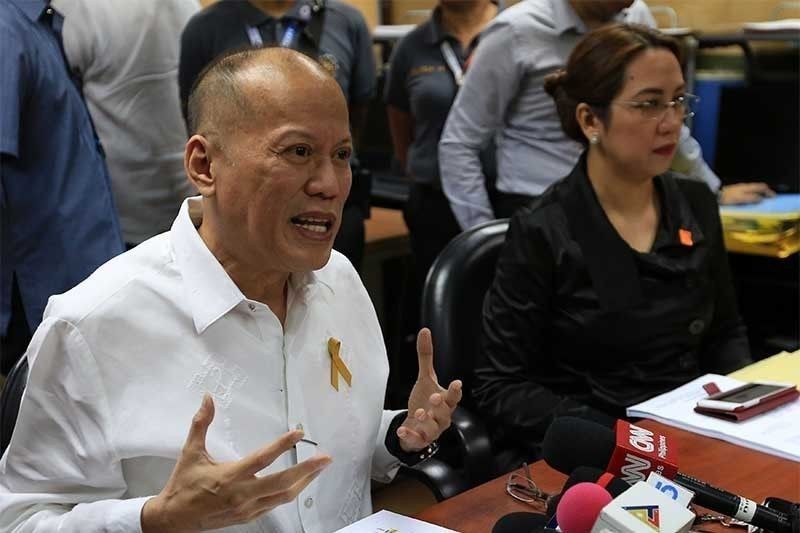Benigno Aquino III blames politics for vaccine scare

MANILA, Philippines — Former president Benigno Aquino III believes that politicking related to the Dengvaxia controversy that erupted after his term has eroded people’s trust in vaccines, including those for measles.
In a statement, Aquino pointed out anew that based on experts’ studies, only 17 out of the 837,902 children who received the anti-dengue vaccine Dengvaxia may be at risk of contracting Grades I and II dengue since 90 percent of the country’s population had already been exposed to the disease.
Sanofi Pasteur, the French manufacturer of Dengvaxia, classifies Grades I and II as “mild dengue” and Grades III and IV as “severe.”
Aquino said that based on computations in the case of Dengvaxia vaccines, only 0.02 percent of the estimated 10 percent (about 83,790) were not yet infected with dengue. When rounded off, this would be equivalent to 16.758 or 17.
“It is clear, we have our political enemies who will always say what we did or did not do is wrong. They will make an issue out of a non-issue. It is clear, 17 may be at risk of having Grades I and II dengue, which are not even the most severe,” Aquino, who celebrated his 59th birthday yesterday, said in a statement.
“They clouded vaccinations with intrigue, doubt and fear. They caused anxiety among the 837,902 and the whole nation, so even the vaccines for measles are being shunned,” he added.
Aquino made the statement as a House joint committee came out with a report on Wednesday recommending the filing of graft and technical malversation charges against him, his former health secretary Janette Garin and ex-budget chief Florencio Abad for allegedly approving the anti-dengue vaccination program hastily and without lawful appropriation.
Saying his conscience is clear, he vowed to face all cases that will be filed against him.
The Department of Health declared a measles outbreak in Metro Manila and Central Luzon also on Wednesday and in other regions on Thursday.
Public Attorney’s Office chief Persida Acosta was blamed, among other factors, by the DOH for the vaccine scare as she released several reports linking the deaths of some vaccinees to Dengvaxia when health experts have said there was no reason to panic as there were no conclusive findings yet on these claims.
Amid these developments, Aquino said it would be up to the people to judge who is right.
He added that he green-lighted the project after Sanofi offered Dengvaxia vaccine in 2015 with the assurance that it underwent 20 years of study, had 40,000 clinical subjects and was approved in other countries. He also noted that it was only in 2017 when Sanofi announced that individuals who have not been previously infected by the dengue virus have an increased risk of hospitalization for dengue and severe dengue but “predominantly Grade I or II.”
“Based on a report to us, the causes of deaths are different – like viral encephalitis, electrolyte imbalance and acute respiratory failure. There is no evidence yet showing that Dengvaxia caused deaths,” he stressed.
Amid the loss of confidence in vaccines, Aquino said 55 children were reported to have died of measles, which he described as a vaccine-preventable illness, due to an outbreak.
Sen. Risa Hontiveros has also blamed the PAO for the loss of confidence in vaccines, claiming that Acosta has “created confusion” instead of using the opportunity to clarify the issue.
Aquino also countered the joint committee’s statement that there were warnings against Dengvaxia but “he chose to listen to government experts,” noting that nobody stopped him from approving the procurement of the vaccine and that he would not know where the panels obtained such information.
Aquino said the committee report also questioned the funds used when they clearly came from the 2015 Miscellaneous Personnel Benefits Fund (MPBF) in accordance with the rules on savings of the Supreme Court and Congress. – With Paolo Romero
- Latest
- Trending































